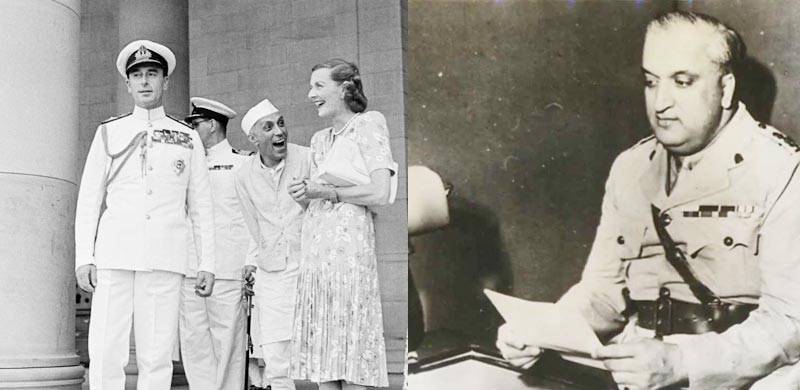
With the world once again dreading the outbreak of a nuclear war between India and Pakistan over the issue of Kashmir in the wake of the revocation of the Article 370 by the Indian government, it is all the more important to go back to history and see how the crisis actually originated and what the conniving factors were that led to an irresolvable dispute between two of the world’s most populous countries.
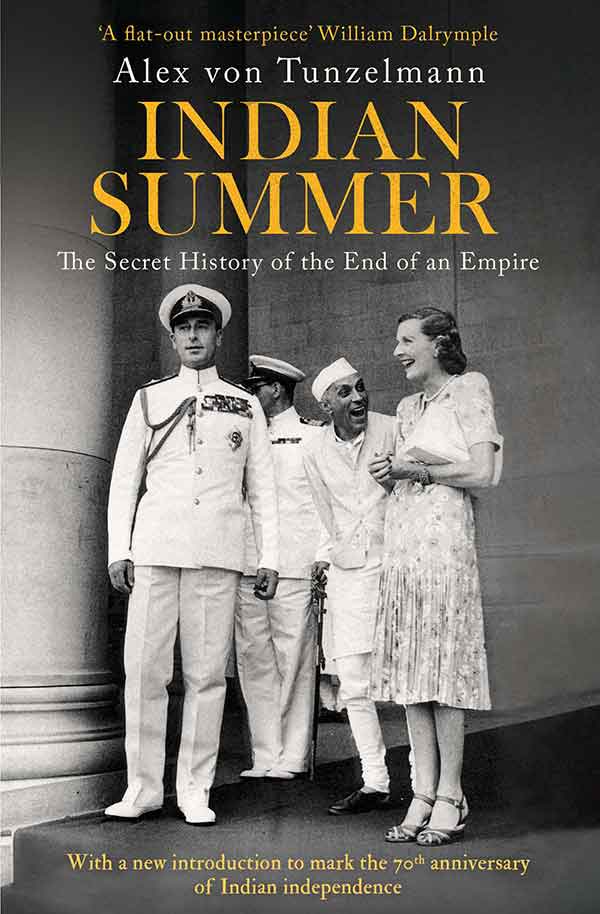
In this regard, Alex von Tunzelmann’s 2007 book Indian Summer: The Secret History of the End of an Empire provides an enthralling account of some of the most important details that influenced the events between August 15, 1947, and the limited war that followed between Pakistan and India in 1948, eventually leading to the referral of the matter to the United Nations.
Following are some of the most significant passages from the ‘Kashmir’ chapter of the book that shed light on the events and the characters of the highest importance in those critical months after the independence of the Indian subcontinent.
Kashmir Sold To Gulab Singh (1846)
Kashmir had come into existence as a princely state in 1846. “The British had acquired the territory following the First Sikh War but lacked the resources or the inclination to administer it. Instead, they sold it under the Treaty of Amritsar to Gulab Singh, the Raja of Jammu, for 750,000 rupees. It is sometimes said that this sale was the root cause of the Kashmir conflict; either because Gulab Singh was a Dogra Hindu and most of the people were Muslims or because he was, in the words of the Viceroy, Lord Hardinge, ‘the greatest rascal in Asia’.”
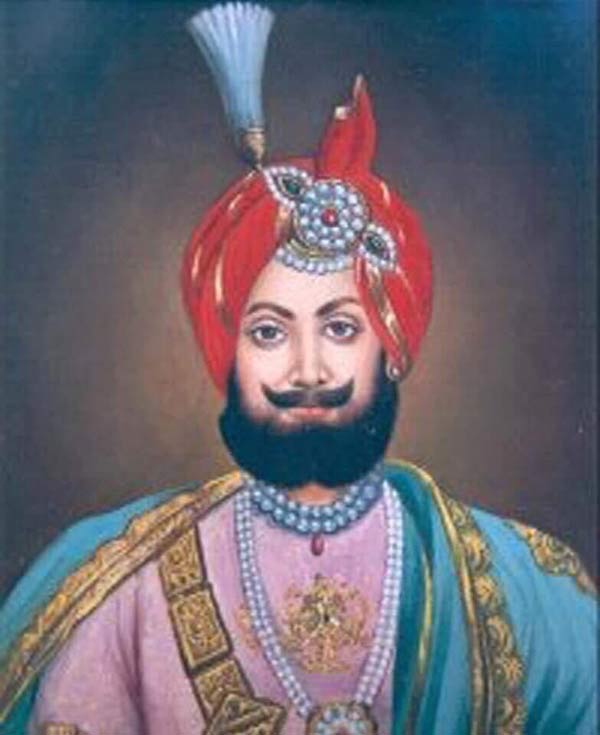
“All Kashmir’s diverse and agreeable ways of life had continued in relative stability until soon after the partition of the subcontinent. Unlike the partition holocausts, whose effect was localized in time and space, the Kashmir crisis continues to pose one of the most serious threats to international stability that the world has ever seen.”
The Assumption Of The British About Kashmir’s Accession To Pakistan
Alex von Tunzelmann writes that Kashmir’s trade and geography favoured the prospects of its accession to Pakistan. Moreover, its population was also predominantly Muslim. She writes:
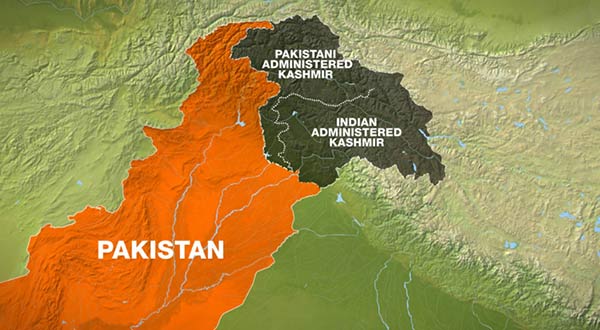
India Was The First To Act
It is generally believed that Pakistan was the first to act in Kashmir as the tribesmen had started infiltrating Kashmir by mid-October. However, Tunzelmann reports to the contrary.
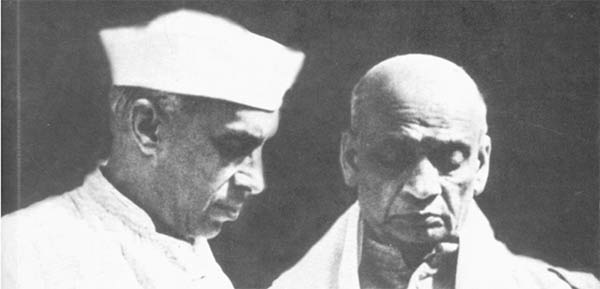
The Maharaja Started Muslim Genocide in Kashmir Before Tribesmen’s Infiltration
Similarly, it is often stated that the tribal Pashtuns were the first to infiltrate Kashmir and that they embarked on a flurry of loot and plunder in the valley after which the Indian help was sought by Maharaja Hari Singh. Tunzelmann writes that it was the Maharaja who started a Muslim ‘genocide’ in the region during September and October.
She further notes that:
India Wasn’t Innocent
Some believe that the Maharaja was acting on his own since he hadn’t acceded to India at that time, but Tunzelmann writes that he was being aided by the Indian government.
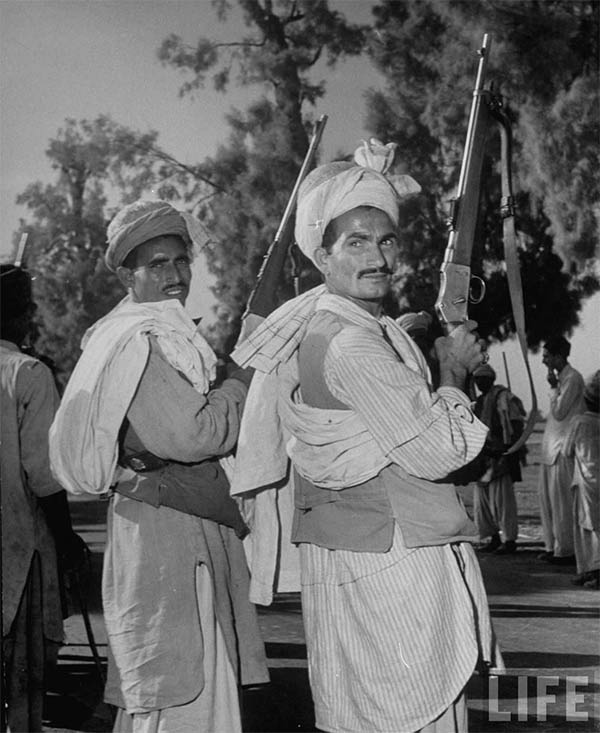
It was then that the Pathan tribesmen, mainly Afridis and Mehsuds, set out to avenge the blood of their Muslim brethren who were flooding into Punjab and North-West Frontier Province from Kashmir.
Maharaja’s Troops Were The First To Cross Pakistan Border
Contrary to the popular belief, it was the Maharaja whose troops violated the international border. It does not necessarily mean that there was no instance of tribal intrusion into the valley before this event but the Maharaja’s act was an act of a sovereign in this case.
That’s when the tribesmen finally decided to march into Kashmir.
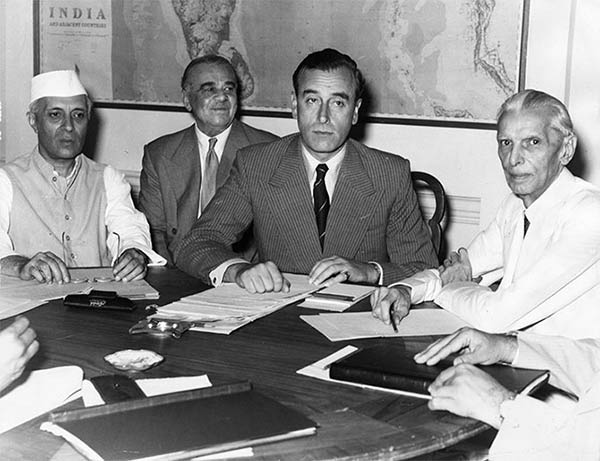
Interestingly, despite persistent efforts, India was never able to prove that Jinnah was behind the move. Alex von Tunzelmann writes:
Tribesmen Hand Time To Maharaja To Consider His Next Move
The tribesmen were headed for a swift victory when Khurshid Anwar, the man who had raised this entire militia, tried to stop them from looting the town of Baramula and ‘consequently lost control of them.
Did The Maharaja Really Enjoy The Authority To Accede?
Tunzelmann questions the authority of the Maharaja to sign the accession instrument since he had already lost control of the territory he was signing an agreement with India on. In fact, the Maharaja and his prime minister had already resigned to Jammu.
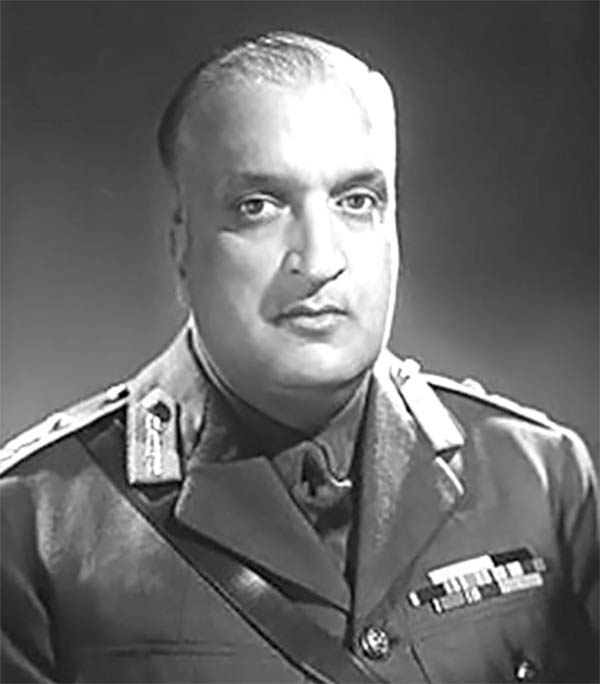
Interestingly, when the pressure to send the troops grew in Delhi, Mountbatten suggested that it would only be possible if Kashmir formally acceded to India first. But the fact is that there was no legal compulsion for the Maharaja to accede Kashmir to India before requesting for help. Tunzelmann writes that:
Although Nehru had personally written a letter to British Prime Minister Clement Attlee that he was not trying to influence Kashmir into acceding to India, fact remains that the very next day of this letter being written to Attlee, the Maharaja in a letter to Mountbatten agreed to sign the instrument of accession.
However, the author of the book insists that there is ‘some muddiness in the evidence as to whether Indian troops were sent in before the instrument of accession was signed or delivered, and even as to whether it was signed or delivered at all. The original seems to have disappeared from the Indian archives.’
She further adds that since he had already lost control of his state, it is doubtful that he was still the Maharaja.
Mountbattens Had Become ‘Wholly Pro-Hindu’
The Indian Summer deals with the warm relationship between the first prime minister of India Jawaharlal Nehru and Edwina Mountbatten, the wife of the last viceroy of India Lord Louis Mountbatten, aka Dickie. In this case, too, Tunzelmann concludes that Lord Mountbatten and his wife had a critical role to play in Kashmir’s accession to India. She quotes Ian Stephens at one point.
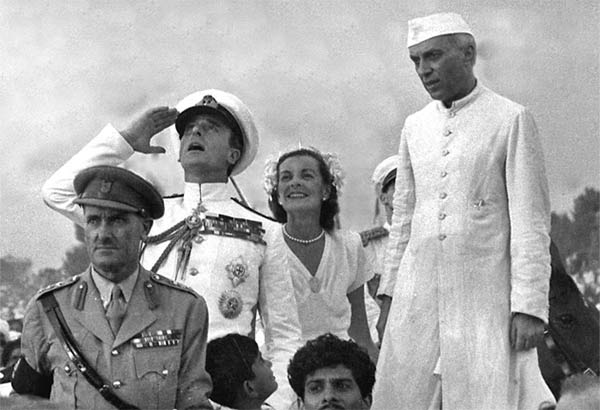
She further adds that:
Mountbatten’s Hand In ‘All The Calamities Of Pakistan’s Young Life’
Mountbatten was opposed to the idea of Pakistan from day one and did everything in his power to force the Muslim League to surrender the demand. After the creation of Pakistan, Alex von Tunzelmann holds him responsible for most of the problems that the young nation faced.
Later, Tunzelmann writes that Mountbatten was given a serious rebuke by Sir Winston Churchill as well for the ‘gross betrayal’ in Kashmir.
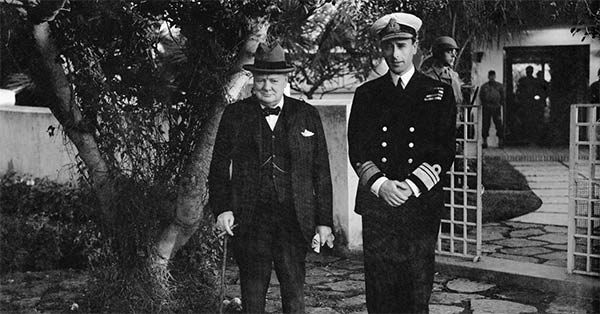
Even the British High Commissioner to Pakistan was irked by Lord Mountbatten's extraordinary efforts to appease Pandit Nehru.
Indian Atrocities Begin In The Valley
Indian authorities have been committing atrocities in Kashmir for the last 72 years. And it is in continuation of the Maharaja’s policy of ethnic cleansing of the valley from the Muslims.
Nehru, although considered the most liberal Indian leader to have headed the country to date, also tried to suppress a report on the local rebellion in Kashmir before the tribesmen’s incursion. The following episode took place on December 6, 1947, when Nehru visited Kashmir.
Finally, Nehru Was Convinced To Refer Kashmir Problem To The UN
Mountbatten had been trying to convince Nehru to refer the matter of Kashmir to the United Nations but the Indian Prime Minister was adamant, accusing the UN of being ‘an American racket’ and the United States of being biased against India.
Although the author credits Mountbatten for the decision to refer the Kashmir problem to the UN, there is one important letter written by British Prime Minister Clement Attlee to his Indian counterpart that seems to have convinced the latter to surrender.
It was then that the Indian PM finally relented and ‘on the very last day of 1947, Nehru gave in to Mountbatten’s persuasion and instructed the Indian ambassador in Washington to submit an appeal to the UN Security Council. In under five months, the two nations of India and Pakistan had embroiled themselves in an irresolvable war.’

In this regard, Alex von Tunzelmann’s 2007 book Indian Summer: The Secret History of the End of an Empire provides an enthralling account of some of the most important details that influenced the events between August 15, 1947, and the limited war that followed between Pakistan and India in 1948, eventually leading to the referral of the matter to the United Nations.
Following are some of the most significant passages from the ‘Kashmir’ chapter of the book that shed light on the events and the characters of the highest importance in those critical months after the independence of the Indian subcontinent.
Kashmir Sold To Gulab Singh (1846)
Kashmir had come into existence as a princely state in 1846. “The British had acquired the territory following the First Sikh War but lacked the resources or the inclination to administer it. Instead, they sold it under the Treaty of Amritsar to Gulab Singh, the Raja of Jammu, for 750,000 rupees. It is sometimes said that this sale was the root cause of the Kashmir conflict; either because Gulab Singh was a Dogra Hindu and most of the people were Muslims or because he was, in the words of the Viceroy, Lord Hardinge, ‘the greatest rascal in Asia’.”

“All Kashmir’s diverse and agreeable ways of life had continued in relative stability until soon after the partition of the subcontinent. Unlike the partition holocausts, whose effect was localized in time and space, the Kashmir crisis continues to pose one of the most serious threats to international stability that the world has ever seen.”
The Assumption Of The British About Kashmir’s Accession To Pakistan
Alex von Tunzelmann writes that Kashmir’s trade and geography favoured the prospects of its accession to Pakistan. Moreover, its population was also predominantly Muslim. She writes:
“It had always been assumed by the British, by the Muslim League, and indeed largely by Congress apart from Nehru himself, that Kashmir would eventually go to Pakistan. Kashmir was the ‘K’ in Pakistan. Its population was predominantly Muslim. Its lines of trade and communication ran into Pakistan. Around one quarter of Kashmir’s total revenue came from timber, which was floated down the Jhelum and Chenab Rivers and collected in towns in Pakistan. Other major exports were fruit and vegetables, also exported through Rawalpindi; and woollens, including the prized cashmere, pashmina and shahtoosh wools, which were sold through the West Punjab and the North-West Frontier Province. There were only three roads running in and out of Kashmir. Two of them went into Pakistan, and one into India – but it was the Maharaja’s private route, a crumbling track described optimistically on the Ordnance Survey maps as ‘jeepable’, and snowbound for five months of each year.”

India Was The First To Act
It is generally believed that Pakistan was the first to act in Kashmir as the tribesmen had started infiltrating Kashmir by mid-October. However, Tunzelmann reports to the contrary.
“On 27 September, he [Nehru] had written to Patel that he thought Pakistan would infiltrate Kashmir soon, with a view to a full annexation just before the snows of winter made the region impossible to defend; and that therefore its accession to India should be assured at the earliest possible minute.”

The Maharaja Started Muslim Genocide in Kashmir Before Tribesmen’s Infiltration
Similarly, it is often stated that the tribal Pashtuns were the first to infiltrate Kashmir and that they embarked on a flurry of loot and plunder in the valley after which the Indian help was sought by Maharaja Hari Singh. Tunzelmann writes that it was the Maharaja who started a Muslim ‘genocide’ in the region during September and October.
“The decision of the Maharaja, Sir Hari Singh, not to accede to Pakistan by 15 August had been based on what was generally seen as a whimsical notion of remaining independent. Both the British and Pakistani governments assumed that the Maharaja would soon enough come to his senses and throw his lot in with Pakistan. But the Maharaja was showing little sign of coming to his senses, and every sign of losing his grip. He was under pressure from his wife and her brother, who served as his Household Minister – both of whom were strongly in favour of joining India … The Maharaja consequently dismissed his moderate Prime Minister, who had apparently recommended accession to Pakistan.”
She further notes that:
“During September and October 1947, the Maharaja’s Dogra-led troops carried out a campaign of sustained harassment, arson, physical violence, and genocide against Muslim Kashmiris in at least two areas – Poonch, right on the border with Pakistan, and pockets of southern Jammu … According to some sources, more or less the entire Muslim population of Jammu, amounting to around half a million people, was displaced, with around 200,000 of those disappearing completely, ‘having presumably been butchered, or died from epidemics or exposure’, noted Ian Stephens, the editor of the Calcutta Statesman.”
“The Maharaja had ordered ethnic cleansing under the guise of a defensive strategy.”
India Wasn’t Innocent
Some believe that the Maharaja was acting on his own since he hadn’t acceded to India at that time, but Tunzelmann writes that he was being aided by the Indian government.
“The Maharaja meant to create a buffer zone of uninhabited land, approximately three miles wide, between Kashmir and Pakistan. Muslims were pushed into Pakistan, or killed. Hindus were sent the other way, deeper into Kashmir. India would deny that any holocaust had taken place, perhaps because it had secretly been providing arms to the Dogra side: the figures are open to question, but the fact that Muslim civilians were persecuted by the Maharaja’s troops is not.”

It was then that the Pathan tribesmen, mainly Afridis and Mehsuds, set out to avenge the blood of their Muslim brethren who were flooding into Punjab and North-West Frontier Province from Kashmir.
“The tribesmen, mostly Afridis and Mahsuds from the North-West Frontier, tied a bright strip of cloth around their rifles, a sign of their oaths not to return home until they had avenged the deaths of Muslims in the Punjab. In tribal groups, the warriors swept down from the mountains and massed on the Kashmir border.”
Maharaja’s Troops Were The First To Cross Pakistan Border
Contrary to the popular belief, it was the Maharaja whose troops violated the international border. It does not necessarily mean that there was no instance of tribal intrusion into the valley before this event but the Maharaja’s act was an act of a sovereign in this case.
“By 20 October, a more public war seemed inevitable. The Maharaja’s troops crossed the border into Pakistan, and attacked four large villages with mortars, grenades and automatic fire. A British officer on the scene estimated the casualties at 1750, excluding those who had been taken to hospital.”
Also read: An Award For Inciting Bloodshed In Kashmir?
That’s when the tribesmen finally decided to march into Kashmir.
“The following night, around 2000 of the massed tribesmen left Pakistan from the Hazara district of the North-West Frontier Province, and marched on Kashmir via the Jhelum Valley.”

Interestingly, despite persistent efforts, India was never able to prove that Jinnah was behind the move. Alex von Tunzelmann writes:
“Despite extensive research by the Indian government, the United Nations and independent researchers, no conclusive evidence has ever been found to confirm Indian suspicions that Jinnah was directing this invasion.”
Tribesmen Hand Time To Maharaja To Consider His Next Move
The tribesmen were headed for a swift victory when Khurshid Anwar, the man who had raised this entire militia, tried to stop them from looting the town of Baramula and ‘consequently lost control of them.
“The tribesmen headed for Srinagar, sacking towns and villages on the way, and recruiting local Muslim troops which had deserted from the Kashmir Army. They were held at Baramula by the Maharaja’s army on 25 October. The result was a massacre, during which the town was reduced to ashes by Mahsud tribesmen. In their frenzy, the Mahsuds failed to distinguish between Kashmiri Muslims and Kashmiri kaffirs. Among the dead was a Muslim youth, nailed to a cross in the town square. Khurshid Anwar suggested that the tribesmen stop looting, and consequently lost control of them. The tribal council spent two days debating whether to have him killed and replaced. This gave the Maharaja, trembling in Srinagar, time to consider his next move.
“India’s top civil servant, V.P. Menon, was dispatched to Srinagar to speak to the Maharaja and his Prime Minister. According to the British High Commissioner, Menon ‘so alarmed them that they were convinced that accession to India offered the only hope of salvation’.”
Did The Maharaja Really Enjoy The Authority To Accede?
Tunzelmann questions the authority of the Maharaja to sign the accession instrument since he had already lost control of the territory he was signing an agreement with India on. In fact, the Maharaja and his prime minister had already resigned to Jammu.

Interestingly, when the pressure to send the troops grew in Delhi, Mountbatten suggested that it would only be possible if Kashmir formally acceded to India first. But the fact is that there was no legal compulsion for the Maharaja to accede Kashmir to India before requesting for help. Tunzelmann writes that:
“It was a curious condition to demand. Had the Maharaja, as head of an independent state, asked India to help defend against an invasion, his action would have been legal. Had India responded to such a call, its action would have been legal, too. Many in Pakistan smelled a rat.”
Although Nehru had personally written a letter to British Prime Minister Clement Attlee that he was not trying to influence Kashmir into acceding to India, fact remains that the very next day of this letter being written to Attlee, the Maharaja in a letter to Mountbatten agreed to sign the instrument of accession.
Also read: Kashmiri Pride And Dignity: My Grandfather’s Dream Will Not Be Forgotten
However, the author of the book insists that there is ‘some muddiness in the evidence as to whether Indian troops were sent in before the instrument of accession was signed or delivered, and even as to whether it was signed or delivered at all. The original seems to have disappeared from the Indian archives.’
She further adds that since he had already lost control of his state, it is doubtful that he was still the Maharaja.
“But the question of when exactly the Maharaja signed the instrument is a red herring. He had already deserted his capital by the time he even requested the instrument, and had lost control of his state. Under such circumstances, it is doubtful that he was still the Maharaja in any meaningful sense, and whether he had the authority to accede to either dominion.”
Mountbattens Had Become ‘Wholly Pro-Hindu’
The Indian Summer deals with the warm relationship between the first prime minister of India Jawaharlal Nehru and Edwina Mountbatten, the wife of the last viceroy of India Lord Louis Mountbatten, aka Dickie. In this case, too, Tunzelmann concludes that Lord Mountbatten and his wife had a critical role to play in Kashmir’s accession to India. She quotes Ian Stephens at one point.
“That evening, Ian Stephens dined with the Mountbattens, and ‘was startled by their one-sided verdicts on affairs’, he wrote. ‘They seemed to have become wholly pro-Hindu’ … Mountbatten told Stephens that Jinnah was waiting in Abbottabad, ready to drive triumphantly into Srinagar, ‘where he had hoped to have his breakfast – quite in the fashion of the Kaiser at the beginning of World War No. 1’, according to the Indian High Commissioner to Pakistan. It has since been shown that Jinnah spent all of late October in Karachi and Lahore.”

She further adds that:
“Sir Laurence Grafftey-Smith and Duke, the two most senior British diplomats in Pakistan, both worried that Mountbatten’s position and attitude were stirring up ‘anti-British feeling’.”
Mountbatten’s Hand In ‘All The Calamities Of Pakistan’s Young Life’
Mountbatten was opposed to the idea of Pakistan from day one and did everything in his power to force the Muslim League to surrender the demand. After the creation of Pakistan, Alex von Tunzelmann holds him responsible for most of the problems that the young nation faced.
“In all the calamities of Pakistan’s young life, the hand of Dickie could be detected: the mysterious delay in the publication of the Radcliffe award; the failure to arrest known Sikh troublemakers just before partition; and now the accession of Kashmir to India. The Pakistani Minister of Finance offered Grafftey-Smith his acid congratulations on Britain’s ‘latest victory over Pakistan’.
Later, Tunzelmann writes that Mountbatten was given a serious rebuke by Sir Winston Churchill as well for the ‘gross betrayal’ in Kashmir.
Also read: Violent Misogyny Against Kashmiri Women Shows War Is Patriarchal
“Churchill patted him on the back, gave him a glass of port and a cigar, and then told him categorically that his sending British soldiers ‘to crush and oppress the Muslims in Kashmir’ was an act of gross betrayal. He described Nehru and Patel as ‘enemies of Britain’, and the Muslims as Britain’s allies; and accused Mountbatten of planning and organizing ‘the first victory of Hindustan’ (he refused to call it India) ‘against Pakistan’.”

Even the British High Commissioner to Pakistan was irked by Lord Mountbatten's extraordinary efforts to appease Pandit Nehru.
In a moment of irritation, the British High Commissioner in Karachi would write that ‘We seem to be faced with a choice between what may be loosely described as natural justice and the appeasement of one man who, since he is himself a Kashmiri pundit, is blinded to realities by emotions passionately involved.’
Indian Atrocities Begin In The Valley
Indian authorities have been committing atrocities in Kashmir for the last 72 years. And it is in continuation of the Maharaja’s policy of ethnic cleansing of the valley from the Muslims.
“On 5 November [1947], 120 trucks mysteriously arrived in the city of Jammu. Local Muslims were rounded up and told that they would be taken to the Pakistan border, then released across it. Five thousand civilian men, women and children complied and got into the trucks. Instead of driving to the border, the trucks turned the other way, and took the Muslims further into the heart of Jammu. The convoy halted, the guards got out, and then, with machine guns and blades, massacred their charges. A few hundred escaped by hiding in fields or canals. The rest were killed.”
Nehru, although considered the most liberal Indian leader to have headed the country to date, also tried to suppress a report on the local rebellion in Kashmir before the tribesmen’s incursion. The following episode took place on December 6, 1947, when Nehru visited Kashmir.
“Richard Symonds and Horace Alexander, both relief workers, had paid a lengthy visit to Kashmir and afterwards sent Nehru a report. Symonds had described the conditions in Poonch, where the inhabitants had revolted against the Maharaja of Kashmir back in September or October, apparently before the Pathan raiders invaded. Nehru was furious, for the existence of a prior revolt would strengthen Pakistan’s argument that the raiders had responded to a cry for help from oppressed Kashmiri Muslims. ‘I don’t care a damn what happens to Poonch,’ he shouted. ‘They can go to Pakistan or Hell for all I care.’”
Finally, Nehru Was Convinced To Refer Kashmir Problem To The UN
Mountbatten had been trying to convince Nehru to refer the matter of Kashmir to the United Nations but the Indian Prime Minister was adamant, accusing the UN of being ‘an American racket’ and the United States of being biased against India.
Although the author credits Mountbatten for the decision to refer the Kashmir problem to the UN, there is one important letter written by British Prime Minister Clement Attlee to his Indian counterpart that seems to have convinced the latter to surrender.
“Attlee sent him a sternly worded message telling him not to move forces into Pakistan, even if he thought such an action would constitute self-defence. ‘I am gravely disturbed by your assumption that India would be within her rights in international law’, he wrote. Moreover, Indian hopes for a quick and sharp campaign were ‘very optimistic … all military history goes to shew how difficult it is to deal with the tribes of the N.W. Frontier’.”
It was then that the Indian PM finally relented and ‘on the very last day of 1947, Nehru gave in to Mountbatten’s persuasion and instructed the Indian ambassador in Washington to submit an appeal to the UN Security Council. In under five months, the two nations of India and Pakistan had embroiled themselves in an irresolvable war.’
